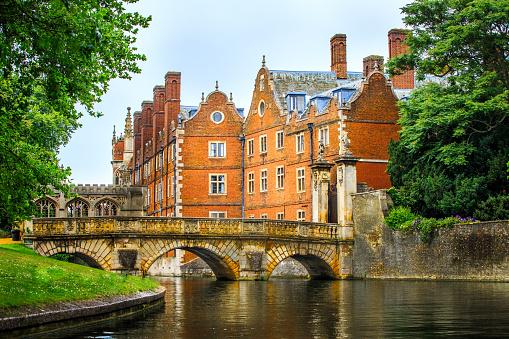
Diversity at Oxbridge: Are They Doing Enough?
In this debate article, former Head of a leading UK public school and William Clarence Advisory board member Peter Tait explores whether Oxford and Cambridge are really doing enough to widen the entry diversity of Oxbridge applicants.
The contention that Oxford and Cambridge Universities are not doing enough to widen the diversity of their entry was met with the predictable rebuttal by alumni of the two universities as well as from current students.
They pointed, instead, to the failure of schools and teachers for not nurturing student aspirations in what is now becoming a familiar cycle of blame. One current student who took up her pen to write on the debate talked of demystifying the Oxford experience and showing that people who attend the university are “just like them.”
She didn’t quite give a lie to the idea that the two universities are the place where the cleverest people go, or debunk the idea that clever people are better equipped than anyone else in the workplace, other than to make a whole lot more money through their working lives (estimated at £200,000 over other Russell Group graduates, courtesy of the brand name).
Clare Foges commented in one article on the subject that the issue is not to break more people into Oxford, ‘but to break the Oxbridge stranglehold on the best opportunities.’
Perhaps the decision of one leading financial services firm, Grant Thornton, to stop giving jobs based on academic criteria is a ray of hope. It has been found that four times as many of those selected from the 10,000 applications a year who would not have met the company’s previous criteria based on grades and references have made their elite group compared to those who had met the original criteria.
The historic relationship between Oxford and Cambridge
Rather than blaming the universities or the schools, perhaps we should consider the historic relationship between them.
Traditionally, places at Oxford and Cambridge were secured by word of mouth, often the result of a communication between a housemaster or headmaster of a public school and a colleague at the university on behalf of Oxbridge applicants.
The relationship was very close, and a reflection of a hierarchical society where education was the preserve of the well-off and the gentry. Independent students, of course, are no longer are given places on who they know – in fact, they would argue it is now more difficult coming from a privileged background.
Oxbridge graduates and the independent sector
However, one place where we see this connection flourishing today is in the number of Oxbridge graduates teaching in the independent sector, where they often make up the majority of the teaching staff. Even smaller regional schools are likely to have a number in double figures.
A significantly smaller number choose to teach in state schools, often at Grammar Schools, while there are signs that more are beginning to go outside their comfort zone to teach at comprehensive schools. However, in many state schools, you might not find a single Oxbridge graduate. And why should that matter?
Unpicking the history of class and expectations
Rather than focusing on universities and schools, then, perhaps we need to unpick a whole history of class and expectations. The fact is that most independent schools are packed full of Oxbridge teachers sharing their knowledge with their students.
Many state schools have few/no such role models. One response I had to a Twitter feed on the subject noted that, at their comprehensive, there was a part-time Cambridge Mathematics graduate who felt a student in Year 10 was a contender for Cambridge, adding hopefully, ‘very lucky. Hoping they stick around for 3 years!’
If it takes a part-time member of staff to make the connection simply on their own experience, as in this instance, we are in a parlous state in those schools where there is no provenance, no tradition, and no historic connection between school and university.
What’s all the fuss about anyway?
Of course, many would say: why does it matter, all this fuss about Oxbridge? Apart from making sure that education at all levels is open to all, and however much we disavow the idea, the composition of the student body at both universities is seen as a barometer of social mobility.
Unless we get an influx of Oxbridge graduates opting to teach in the state sector, it is going to be difficult to change behaviours. People aspire to what they know and often only feel comfortable passing on their own experiences and information.
Perhaps if employees can see that clever people are not always equipped with the aptitude, character and skills they actually want, then Oxbridge might start to be seen as just another option, not just for the cache of having been there.
Are you an Oxbridge applicant in need of support?
William Clarence Education offers unbiased advice and consultancy on UK School and University Placement, Oxbridge Admissions, US College Applications, UCAS application and extensive support for parents and students in all aspects of preparing for entry to the UK.
So, whether you need help and advice on the Oxbridge applications interview process, are looking for information on the courses and, or if you need support with the admissions tests, we are here to help every step of the way.
Please contact us on 02074128988 to discuss your particular needs, or email info@williamclarence.com to find out more about we can help.
Peter Tait is a former Head of a leading UK public school and is part of the William Clarence Education Advisory Board.
